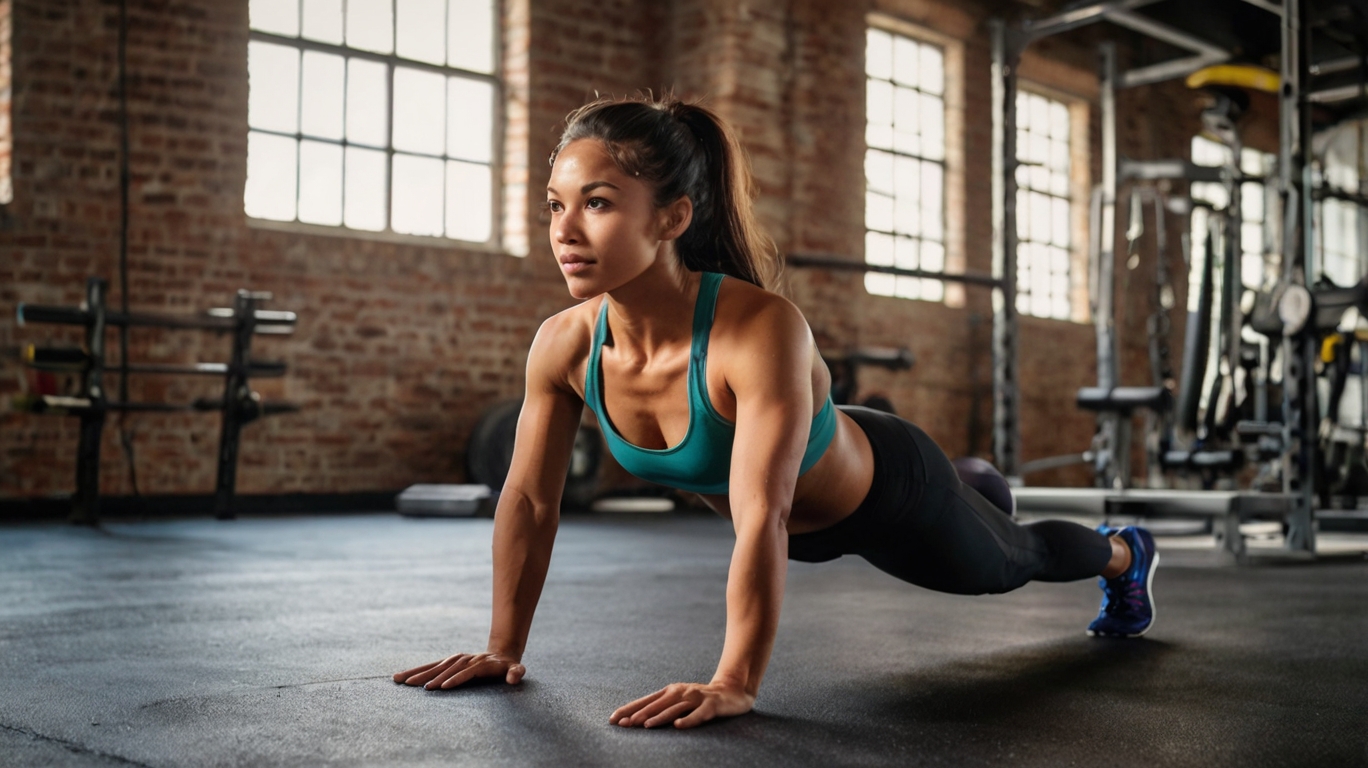 Mind
Mind
- Digital and Modern Well-being
- Mental Health and Emotional Well-being
- Mind-Body Connection and Holistic Health
- Parenting and Family
- Personal Growth and Development
- Relationships and Social Well-being
- Stress and Relaxation
- Therapeutic and Creative Practices
- Trauma and Recovery
- Work, Productivity, and Discipline
 Body
Body
 Fitness
Fitness
 Food
Food
 Beauty
Beauty
Explore a World of Exercise Routines: From Beginner to Advanced

Explore a World of Exercise Routines: From Beginner to Advanced
Embarking on a fitness journey can feel overwhelming, especially with the multitude of exercise routines available. Whether you’re just starting out or looking to take your workouts to the next level, understanding the various types of exercise routines can help you find the right fit for your goals and lifestyle. This guide will explore a wide range of exercise routines, from beginner to advanced, to help you discover the best ways to stay active, healthy, and motivated.
1. Beginner Exercise Routines
a. Walking
Overview: Walking is one of the simplest forms of exercise and requires no special equipment. It’s accessible for everyone and can be easily integrated into daily life.
Benefits: Improves cardiovascular health, strengthens bones, boosts mood, and aids in weight management.
Routine: Aim for 20-30 minutes of brisk walking 3-5 times a week. Gradually increase your pace and duration.
b. Bodyweight Exercises
Overview: These exercises use your body weight for resistance, making them perfect for beginners.
Benefits: Build strength, improve flexibility, and enhance balance without the need for equipment.
Routine: Start with a basic circuit of 10-15 repetitions of each exercise: push-ups (or knee push-ups), squats, lunges, and planks. Complete 2-3 circuits, 2-3 times a week.
c. Yoga
Overview: Yoga focuses on flexibility, strength, and relaxation through various poses and breathing techniques.
Benefits: Enhances flexibility, reduces stress, and promotes mindfulness.
Routine: Join a beginner class or follow online tutorials. Aim for 20-30 minutes, 2-3 times a week.
2. Intermediate Exercise Routines
a. Circuit Training
Overview: Circuit training combines strength and aerobic exercises in a series of stations with minimal rest between them.
Benefits: Improves cardiovascular fitness, strength, and endurance.
Routine: Create a circuit of 6-8 exercises (e.g., jumping jacks, push-ups, kettlebell swings, burpees, and mountain climbers). Perform each exercise for 30-60 seconds, followed by a 15-second rest. Complete 2-3 rounds.
b. Cycling
Overview: Cycling can be done indoors on a stationary bike or outdoors.
Benefits: Strengthens leg muscles, improves cardiovascular fitness, and can be a low-impact option for joint health.
Routine: Aim for 30-60 minutes of cycling, 3-5 times a week. Mix steady-state rides with interval training for variety.
c. Pilates
Overview: Pilates focuses on core strength, flexibility, and overall body awareness.
Benefits: Strengthens the core, improves posture, and enhances flexibility.
Routine: Join a class or follow online sessions for 30-60 minutes, 2-3 times a week.
3. Advanced Exercise Routines
a. High-Intensity Interval Training (HIIT)
Overview: HIIT involves short bursts of intense exercise followed by rest or low-intensity periods.
Benefits: Burns a significant number of calories in a short amount of time and improves cardiovascular fitness.
Routine: Select 4-6 exercises (e.g., sprinting, jump squats, kettlebell swings, and burpees). Work at maximum effort for 20-30 seconds, followed by 10-20 seconds of rest. Repeat for 20-30 minutes.
b. Strength Training with Weights
Overview: Incorporating free weights or machines to build muscle strength and size.
Benefits: Increases muscle mass, boosts metabolism, and strengthens bones.
Routine: Follow a structured program focusing on major muscle groups. Aim for 3-5 sets of 8-12 repetitions for each exercise, 2-3 times a week.
c. Endurance Training
Overview: Endurance training involves longer sessions of cardiovascular exercise to build stamina.
Benefits: Enhances cardiovascular health and prepares the body for extended physical activity.
Routine: Incorporate longer rides, runs, or swims into your routine. Aim for sessions lasting 60 minutes or more, focusing on gradually increasing your distance and intensity.
4. Tips for Success
a. Set Realistic Goals
Begin with achievable goals that align with your fitness level and gradually progress as you improve.
b. Mix It Up
Incorporate a variety of exercises to prevent boredom, work different muscle groups, and enhance overall fitness.
c. Listen to Your Body
Pay attention to your body’s signals. Rest when needed, and don’t hesitate to modify exercises to suit your ability.
d. Stay Hydrated and Nourished
Proper hydration and nutrition support your exercise routine and recovery. Fuel your body with balanced meals and plenty of water.
e. Track Your Progress
Keep a journal or use apps to track your workouts, progress, and achievements. This can help maintain motivation and highlight improvements over time.
Conclusion
Exploring the world of exercise routines can open up endless possibilities for improving your health and well-being. From beginner-friendly activities like walking and yoga to advanced training like HIIT and strength training, there’s something for everyone. The key is to find what you enjoy, stay consistent, and always listen to your body. Embrace the journey to fitness and discover the myriad of benefits that an active lifestyle can offer!
4o mini

